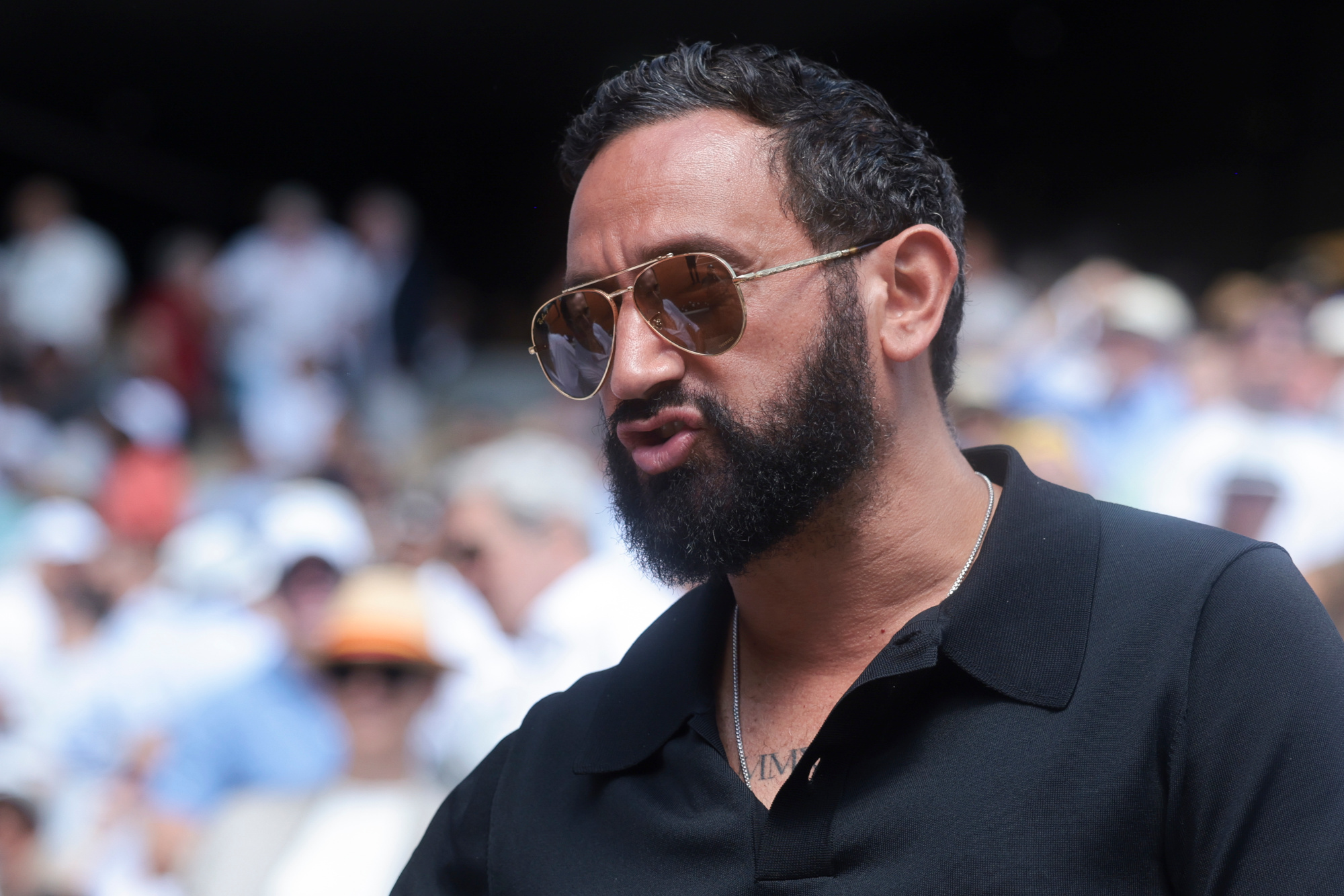A controversial and wildly popular right-wing television star says that he orchestrated a ‘prank’ that he was about to jump into the French presidential race. Cyril Hanouna is a foul-mouthed and hugely influential television star. His politics are messy, his delivery erratic, but he has a vast audience and momentum. He’s anti-woke and talks a tougher line than Le Pen on immigration.
Hanouna’s ‘prank’ should worry the National Rally, which is becoming too eager to be accepted by the establishment it once claimed to oppose
News of Cyril Hanouna’s potential presidential candidacy set France’s media ablaze, with comparisons to Trump and Zelensky, media stars who leapt into politics. But was it a prank, as Hanouna later claimed, or a calculated test of the waters? The evidence suggests the latter. Hanouna admitted emailing 30 contacts about his supposed candidacy, expecting at least two to leak it. ‘You let it infuse,’ he said, ‘give a couple of people fake assignments, and wait.’
Right-leaning magazine Valeurs Actuelles ran a ten-page dossier saying that Hanouna was considering running, detailing meetings with advisers, a strategy team, and policies too substantive for a mere hoax. The magazine claimed to have verified the story with multiple insiders close to Hanouna, lending weight to the idea that he was seriously exploring a run. When Hanouna denied the candidacy, after the story dominated the headlines, it may have been less about honesty than strategy. Under French media law, a declared candidate cannot host a television or radio show, as regulators bar candidates from using their platforms to influence voters and ensure equitable airtime. Hanouna’s multi-million-Euro contracts on television and radio depend on him staying on air. By calling it a prank, he has now been able to gauge public reaction, without sacrificing his platform.
Valeurs Actuelles has stood by its reporting. The magazine’s reliance on multiple insiders suggests Hanouna was serious about his candidacy. Yet while he for now remains a provocateur and not a candidate, his stunt has exposed the hunger in France for an outsider who speaks to the forgotten.
Cyril Hanouna became the most influential media personality in France with a talk show that turned shouting matches into prime-time entertainment. Touche pas à mon poste was broadcast on C8, the channel which was recently stripped of its licence after one run-in too many with the regulator. The decision to take C8 off the air, widely seen as politically motivated, boosted Hanouna’s popularity. He’s now also on Europe 1 radio and has been offered a new television show on W9. The original programme regularly drew between 1.5 and 2 million viewers – and more on nights when the arguments spun out of control. Clips of the programme were plastered on social media.
Hanouna rants about crooked elites, weak judges and bureaucrats who’ve never set foot in the suburbs. He’s called for tougher sentencing, the expulsion of foreign offenders, and an end to what he describes as ‘the tyranny of political correctness.’ At the same time, he wants to scrap VAT on basic goods, raise the minimum wage, and throw tax dodgers in prison. It’s a mash-up of economic populism and law-and-order bluster. It may be somewhat incoherent, but emotionally it’s spot on. He’s less about pitching policies so much as channelling fury.
Hanouna’s television show was the kind of programme that mainstream politicians claimed not to watch but quietly begged to appear on. It was all about how politics doesn’t work for the people. One evening might feature a screaming row about pension reform, the next a brawl over immigration, followed by a tearful confession from a washed-up celebrity. Hanouna presided over the mayhem like a gleeful ringmaster: interrupting, provoking, joking, and occasionally detonating. He doesn’t pretend to be neutral, and he’s never been afraid to say things that make media regulators wince. If the Paris elites find him vulgar, so much the better. His audience comes from the suburbs, small towns and working-class banlieues. He appeals to the France that doesn’t get invited onto French public broadcasters.
Hanouna was born in 1974 in Les Lilas, a grotty working-class suburb just east of Paris. His father was a GP, originally from Tunisia, his mother a sales assistant. He likes to remind viewers that he was a ‘bad student’, that he got kicked out of school, that he grew up watching game shows and dreaming of being on television. He started behind the scenes writing scripts, anything before gradually elbowing his way in front of the cameras. The story he tells is classic French meritocracy. He is everything but grandes écoles, and does not belong to any old-boy networks. He is hustle, instinct and has an ear for what makes people laugh, or rage.
Hanouna’s ‘prank’ should worry the National Rally, which is becoming too eager to be accepted by the establishment it once claimed to oppose. Marine Le Pen and Jordan Bardella have become mainstream, and it’s costing them. The National Rally these days looks and acts like a party of government. In making that transformation, it has created space for something more authentic.
Le Pen and Bardella talk about budget discipline and ‘European cooperation’, while Hanouna speaks of smashing political correctness and empowering the forgotten. For the past decade, Marine Le Pen has been busy scrubbing out the legacy of her father, Jean-Marie Le Pen, and his influence on her party. She has changed the party’s name from the Front National to Rassemblement National. She has dropped talk of quitting the Euro and fallen in line with Brussels – sanding down the party’s edges to make it look electable. But in detoxifying itself, the National Rally may have surrendered the anti-system energy that once set it apart, leaving space for provocateurs like Hanouna to capture the anger of France’s forgotten.
Marine Le Pen’s great bet over the past ten years has been that anger alone isn’t enough to win the presidency. She believes that to win, the party had to be normalised, rebranded, softened and made palatable to the kind of voters who still read Le Monde and worry about their mortgage.
Even the party’s rising star, Jordan Bardella, himself from the Paris suburbs, now speaks in polished phrases and dresses in faultless navy suits, his tie always perfectly straight. He comes across as trying to look presidential. The National Rally now resembles the thing it once promised to reform. In contrast, Hanouna dresses down. He wears an open-necked shirt, a necklace, and has a tattoo across his chest. He doesn’t look presidential, he looks like he wants to reform the system, which is what many believe is necessary.
Hanouna may well have been joking about running for president. But the fact that so many believed him – ministers, journalists, and especially voters – tells us something more serious. In floating the idea of his candidacy, Hanouna didn’t just troll the media. He exposed the National Rally for what it has become – a party so desperate to look respectable that it no longer channels the anger it once thrived on. Whether or not he ever meant to run, Hanouna’s stunt reminded everyone what a real outsider sounds like, and what real change would look like.








Comments